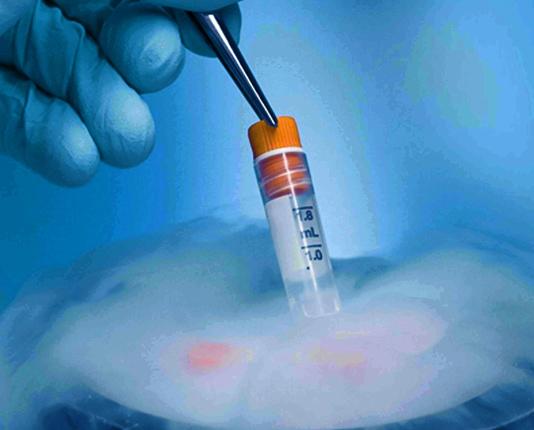Why Sperm Freezing is done?
It is typically done for the following reasons:
- Fertility Preservation: Men who are about to undergo medical treatments, such as chemotherapy or radiation therapy. It may affect their fertility and may choose to freeze their sperm in order to preserve their ability to have children in the future.
- Assisted reproduction: It can be utilized to improve success rates in assisted reproductive techniques like in vitro fertilization (IVF).
- Delay in starting a family: Some individuals or couples may choose to freeze their sperm in order to delay starting a family for personal or professional reasons.
- Sperm donation: Men who wish to donate their sperm to a sperm bank may need to freeze their sperm. In order to ensure that it is of high quality and can be used by recipients at a later time.
Before opting to have the surgery, it is crucial to thoroughly weigh the potential dangers and advantages of sperm freezing. It is also important to discuss the process with a fertility specialist or healthcare provider to determine if it is appropriate for your situation.
What is the Procedure for Sperm Freezing?
The procedure for sperm freezing, also known as cryopreservation, typically involves the following steps:
- Sperm collection: Sperm can be collected through masturbation or by using a special condom during ejaculation. It is important to avoid any substances or behaviours that may affect the quality of the sperm, such as smoking, alcohol consumption, and certain medications.
- Sperm processing: The collected sperm is processed in a laboratory to remove contaminants and prepare it for freezing. The sperm is also checked for quality, including motility (the ability to move) and concentration.
- Freezing: The processed sperm is mixed with a special cryoprotectant solution to protect it from damage during the freezing process. The mixture is then placed in a small container, such as a straw, and frozen in liquid nitrogen at a temperature of -196°C (-320°F).
- Storage: The frozen sperm is stored in a sperm bank or fertility clinic for future use. The sperm can be stored for an indefinite period of time as long as it is kept at the proper temperature.
- Thawing and use: When the sperm is needed, it is thawed and prepared for use in artificial insemination or in vitro fertilization (IVF). The success rate of fertilization using frozen sperm is similar to that of fresh sperm, but it may be slightly lower.
It is important to carefully consider the potential risks and benefits of sperm freezing before deciding to undergo the procedure. It is also important to discuss the process with a fertility specialist or healthcare provider to determine if it is appropriate for your situation.
How long can you freeze sperm?
Sperm can be frozen and stored for an indefinite period of time, as long as the sperm samples are properly frozen and stored. Sperm samples are typically frozen in a process called cryopreservation, which involves freezing the sperm at very low temperatures (-196°C/-320°F) in a solution of cryoprotectant, a substance that helps to protect the sperm cells from damage during the freezing process. The cryoprotectant solution helps to prevent the formation of ice crystals within the sperm cells, which can damage or destroy the cells.
Once the sperm samples are frozen, they can be stored in a cryogenic tank or container specifically designed for long-term storage at very low temperatures. These tanks or containers are typically filled with liquid nitrogen, which helps to maintain the extremely low temperatures required for cryopreservation.
How effective is sperm freezing?
Sperm freezing (also known as cryopreservation) is generally a very effective method for preserving sperm for later use. The success rate for sperm freezing depends on various factors, including the quality and quantity of the sperm being frozen, the freezing method used, and the storage conditions of the frozen sperm.
In general, the success rate for sperm freezing is very high. According to the American Society for Reproductive Medicine (ASRM), the success rate for using frozen sperm in artificial insemination procedures (such as intrauterine insemination, or IUI) is similar to the success rate for using fresh sperm. The ASRM also reports that the success rate for using frozen sperm in IVF (in-vitro fertilization) procedures is slightly lower than the success rate for using fresh sperm, but is still quite high.
What is the Cost of Sperm Freezing in Srinagar?
The cost of sperm freezing can vary depending on a number of factors, including the location of the fertility clinic or sperm bank, the specific services provided, and the length of time the sperm will be stored. In Srinagar, the cost of sperm freezing can range from 10,000-1,5000 for the initial freezing and processing of the sperm.
Sperm Storage fees can vary, with some clinics charging a flat rate for long-term storage and others charging an annual fee. Understanding what is included in the price and the available payment methods with the fertility centre or sperm bank can help you budget for any potential unforeseen costs.
It is also important to note that it is not always covered by insurance, so it is essential to check with your insurance provider to determine if the procedure is covered under your plan. Some fertility clinics may offer financing options to help make the cost of sperm freezing more manageable.




